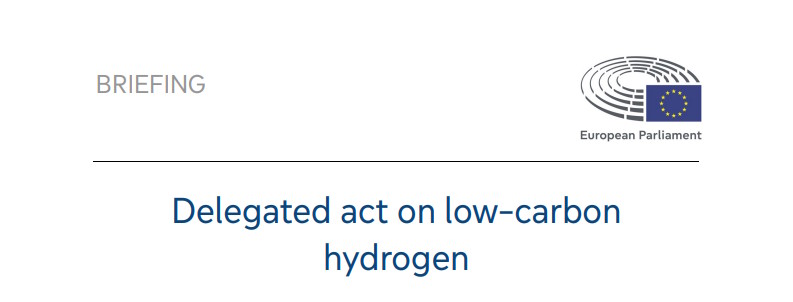Briefing Delegated act on low-carbon hydrogen

I dove into the European Parliamentary Research Service Briefing on the “Delegated Act on Low-carbon Hydrogen”.
✅ Key takeaways:
📌 The delegated act, adopted by the Commission on 8 July 2025, is the final missing piece of the EU’s hydrogen regulatory framework. Its was adopted by the Commission on 8 July 2025, pending scrutiny by the Parliament and the Council until 10 November.
📌 The delegated act does not create financial incentives or targets but provides much-needed regulatory clarity on what qualifies as low-carbon hydrogen, supporting cross-border trade, investment, and a future EU hydrogen market.
📌 Electrolysis via the grid is only eligible in countries with very low grid emissions (currently: France, Sweden, Finland). Elsewhere, PPAs will play a key role.
📌 Nuclear power: The delegated act does not include a specific methodology for producing low-carbon hydrogen from nuclear power plants. The Commission plans to launch a public consultation on a draft methodology for this production method in 2026.
📌 Blue hydrogen faces stricter requirements. LNG-related emissions must be calculated using a methane-intensity methodology by 2027/28, raising uncertainty.
📌 Production costs: CCS-based hydrogen remains cheaper in the near term, while electrolytic hydrogen is still challenged by high EU power prices.
📌 Imports: The same low-carbon criteria apply to non-EU producers; a region-specific GHG methodology could follow by 2028.
⚠️ Parliament had already stressed in 2021 that low-carbon hydrogen must be seen as a bridging technology in the short and medium term, but also called for a clear distinction from renewable hydrogen.
The upcoming months will show whether Parliament and Council accept this final building block of EU hydrogen regulation or send the Commission back to the drawing board.
➡️ Source: European Parliamentary Research Service. Briefing: Delegated act on low-carbon hydrogen
